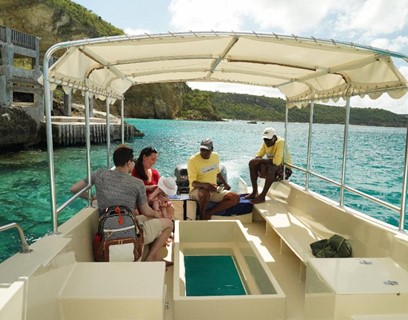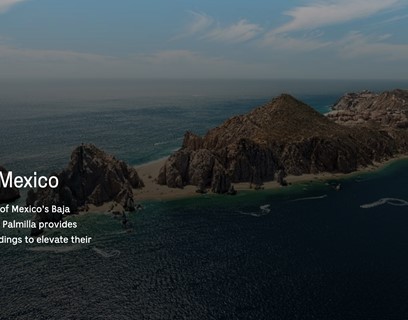
I recently came across symbiosis, which is the name given to a relationship between two different species that live together. An example would be flowers and bees: Flowers provide food for bees, while bees help to pollinate flowers. Without bees, many flowers would not be able to produce seeds. That’s an example of symbiosis on land; but make no mistake, a lot of aquatic creatures depend on symbiotic relationships for survival.
The two most widely recognized types of symbiosis are parasitism and mutualism. When I learned this, I instantly made a connection to our lives. Parasitism is the name given to non-mutual relationships where one organism (the parasite) benefits at the expense of the host. There are a lot of parasitic relationships under the ocean. An example of such a relationship would be sea lampreys and fish. Sea lampreys are slimy, snake-like creatures that have a suction cup mouth filled with sharp teeth. They attach to fish and feed on their blood. Fish that are attacked by sea lampreys aren’t able to free themselves from these deadly creatures and usually end up dead because of the loss of blood and nutrients. The fish that do survive attacks are left with a large wounds that can easily become infected.
Although present under the ocean, parasitism can be found in the lives of humans as well. Parasitism between humans tends to be more emotional and mental, rather than physical (unless you believe in vampires, or, you know, we have a zombie apocalypse). Being surrounded by people who let off large amounts of negative energy can be considered a parasitic environment. Unfortunately, a lot of romantic relationships are parasitic, leaving one partner fully nourished by sucking all of the other partner’s energy. If you notice that your friendship, your intimate relationship with your partner or even the professional relationship with one of your clients is parasitic, you need to find a way out. Parasitic relationships will only cause you harm.
Mutualism, a relationship between two species in which both benefit from the association, can also be found under the ocean as well as in our lives, both personal and business. These are the relationships that we should try to make and keep, because they allow us to give and receive value.
If you’ve seen Finding Nemo (and really, who hasn’t?) you’ve witnessed one of the most beautiful examples of mutualism in the ocean. Nemo and his father were both clownfish living within anemones. Sea anemones have tentacles that sting. Clownfish have a layer of mucus on their skin which protects them from the stinging tentacles of sea anemones. Predators of the clownfish are unable to withstand the sting of the tentacles. As a result, clownfish are able to hide and rest within the anemones safely. In return, the clownfish scares off other fish, like the butterfly fish, which eat sea anemones when clownfish aren’t present. There is also evidence to suggest that waste materials from clownfish serve as a source of nutrients to anemones. In this relationship, both organisms benefit.
Likewise, our personal lives and businesses are dependent on relationships with others. Greatness can not be achieved without the input of others. It’s the truth; I dare you to name any person or company that contributed to society without the help of others. Completely self-made men are nothing but myths.
There are a number of symbiotic relationships that happen under the ocean. Actually, all organisms are interdependent on other species. Without interaction between different organisms the whole ecological system would die and this is a wonderful reminder to us humans that we should recognize the importance of relationships, because all of us—land animals, sea creatures, humans, and even companies—are built on symbiotic relationships, and since we are first and foremost social creatures, this is especially important to us. When we recognize how vital it is to create and nurture relationships and when we begin to swim away from parasitic friends and embrace mutualistic relationships, we create an opportunity to reach greatness.
Note: Like most adolescents, Warren balances his time between schoolwork and extracurricular activities, but that’s probably the most he has in common with his peers. Warren, 15, is an award-winning entrepreneur, published author and investor living in the Caribbean. His work is highly focused on the connection between business and nature. warren@warrencasselljr.com


